
Ba: The Hidden Gem of Fiji
Nestled on the western side of Viti Levu, Ba is a charming city that offers a unique blend of cultural richness and natural beauty. Often overshadowed by more famous Fijian destinations, Ba provides an authentic experience for those seeking to explore the heart of Fiji away from the crowded tourist hotspots. Ba is known for its vibrant sugar cane fields, which paint the landscape in lush shades of green. This agricultural heritage is deeply ingrained in the local culture, and visitors can learn about the sugar industry through guided tours and visits to local farms. The Ba River, winding through the city, adds a serene backdrop to this picturesque locale. The city is a melting pot of cultures, with a significant Indo-Fijian community contributing to its diverse character. This is reflected in the local cuisine, markets, and festivals. The Ba Market is a bustling hub where you can experience the sights, sounds, and flavors of everyday Fijian life. For a deeper cultural immersion, attend the annual Ba Town Carnival, a festive event showcasing traditional music, dance, and food. Nature enthusiasts will appreciate the proximity to the Nausori Highlands. A short drive from Ba, these highlands offer breathtaking views, hiking trails, and opportunities to explore indigenous Fijian villages. Whether you're savoring the local cuisine, exploring the natural beauty, or mingling with the friendly locals, Ba promises an enriching and unforgettable experience.
Local tips in Ba
- Visit the Ba Market early in the morning to experience the freshest produce and lively local atmosphere.
- Plan your visit around the Ba Town Carnival to enjoy traditional music, dance, and local delicacies.
- Hire a local guide for a tour of the sugar cane fields to learn about the history and significance of the sugar industry in Ba.
- Take a day trip to the Nausori Highlands for stunning views and an opportunity to visit indigenous Fijian villages.
- Try the local Indo-Fijian cuisine at family-run eateries for an authentic culinary experience.
Ba: The Hidden Gem of Fiji
Nestled on the western side of Viti Levu, Ba is a charming city that offers a unique blend of cultural richness and natural beauty. Often overshadowed by more famous Fijian destinations, Ba provides an authentic experience for those seeking to explore the heart of Fiji away from the crowded tourist hotspots. Ba is known for its vibrant sugar cane fields, which paint the landscape in lush shades of green. This agricultural heritage is deeply ingrained in the local culture, and visitors can learn about the sugar industry through guided tours and visits to local farms. The Ba River, winding through the city, adds a serene backdrop to this picturesque locale. The city is a melting pot of cultures, with a significant Indo-Fijian community contributing to its diverse character. This is reflected in the local cuisine, markets, and festivals. The Ba Market is a bustling hub where you can experience the sights, sounds, and flavors of everyday Fijian life. For a deeper cultural immersion, attend the annual Ba Town Carnival, a festive event showcasing traditional music, dance, and food. Nature enthusiasts will appreciate the proximity to the Nausori Highlands. A short drive from Ba, these highlands offer breathtaking views, hiking trails, and opportunities to explore indigenous Fijian villages. Whether you're savoring the local cuisine, exploring the natural beauty, or mingling with the friendly locals, Ba promises an enriching and unforgettable experience.
When is the best time to go to Ba?
Iconic landmarks you can’t miss
Sri Siva Subramaniya Swami Temple
Explore the beauty and cultural richness of Sri Siva Subramaniya Swami Temple in Nadi, the largest Hindu temple in the Southern Hemisphere.
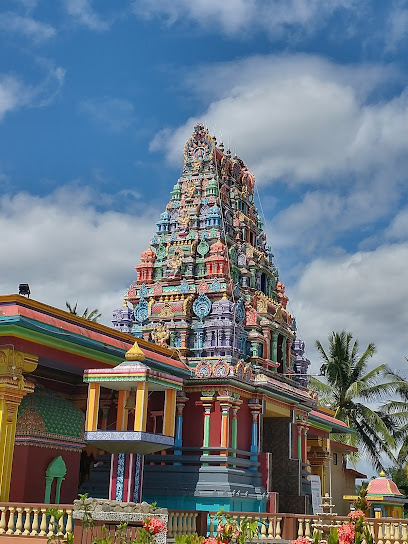
Churchill Park
Discover the tranquil beauty of Churchill Park in Lautoka, Fiji - a perfect blend of nature, recreation, and local culture.
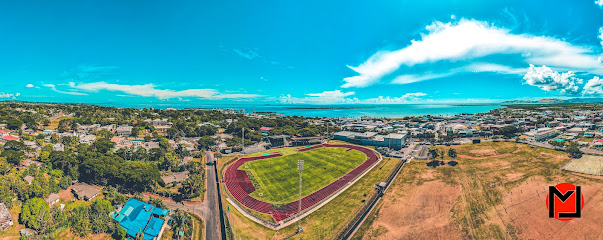
Garden of the Sleeping Giant
Explore the stunning Garden of the Sleeping Giant, Fiji's premier botanical garden known for its diverse collection of orchids and serene landscapes.
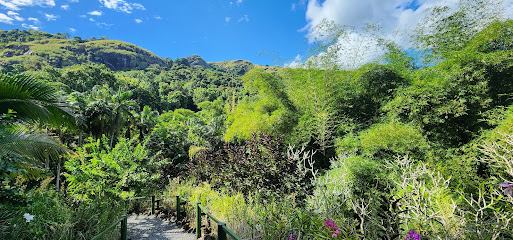
Kula WILD Adventure Park
Explore Kula WILD Adventure Park in Fiji for thrilling rides, exotic wildlife encounters, and unforgettable family fun in a stunning tropical setting.
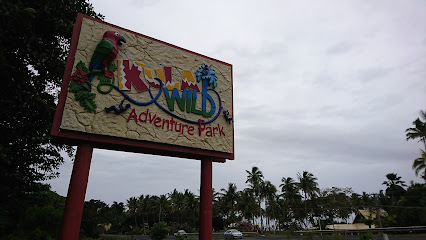
Sabeto Hot Spring Mud Pool and Tours
Experience the healing power of nature at Sabeto Hot Springs and Mud Pool, a tropical oasis in Fiji offering therapeutic mud baths and stunning scenery.
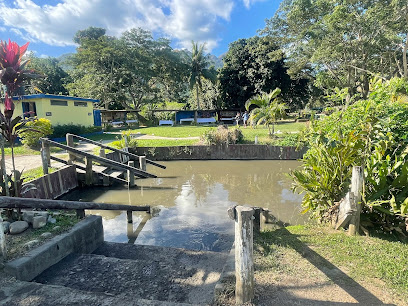
Koroyanitu National Park
Discover the unparalleled beauty of Koroyanitu National Park in Fiji, a paradise for nature lovers and adventure seekers alike.
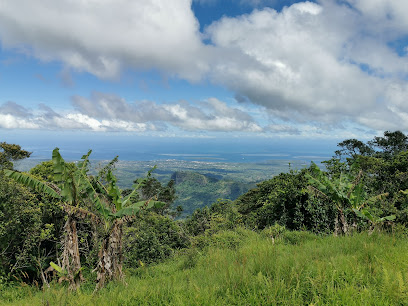
Ba River
Experience the serene beauty of Ba River in Fiji, a paradise for nature lovers and adventure seekers with activities for everyone.
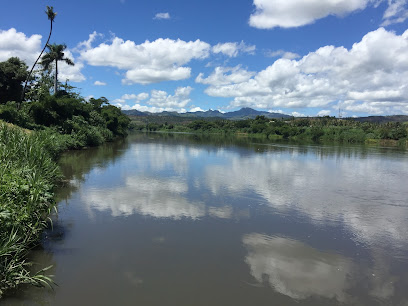
Mount Korobaba
Explore the natural beauty of Mount Korobaba, a premier hiking destination near Suva, Fiji, with stunning views and diverse wildlife.
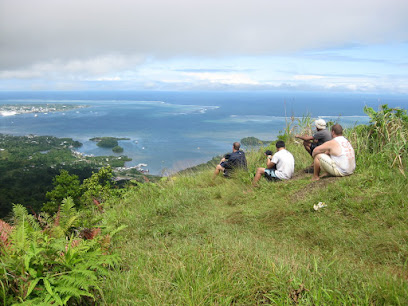
Island Hoppers Fiji
Experience the breathtaking beauty of Fiji from above with Island Hoppers Fiji's unforgettable helicopter tours.
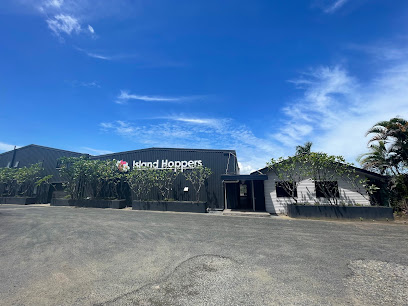
Tavuni Hill Fort
Discover the historical significance and breathtaking views at Tavuni Hill Fort, a must-visit landmark in Fiji's rich cultural landscape.
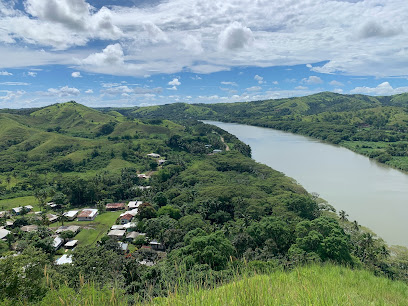
Kila World
Experience the beauty and adventure of Fiji at Kila World, a must-visit attraction in Nabukavesi, offering a blend of nature and culture.
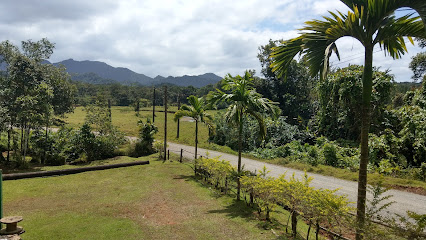
Rarawai Sugar Mill
Discover the rich heritage of Fiji's sugar industry at Rarawai Sugar Mill, an essential stop for culture and history enthusiasts in Ba.
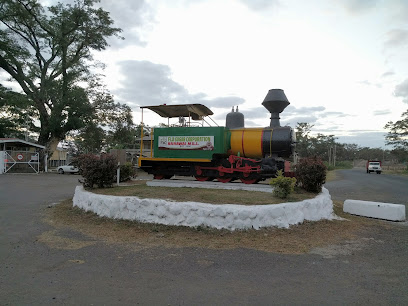
Namadi Heights Baptist Church
Explore the serene beauty and welcoming spirit of Namadi Heights Baptist Church in Suva, Fiji – a perfect blend of culture and tranquility.
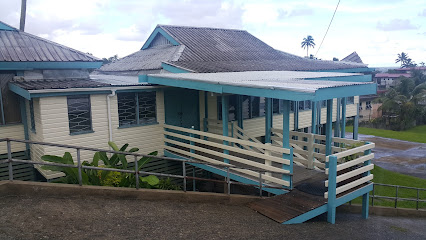
Naihehe Cave
Explore Naihehe Cave: A captivating historical landmark in Fiji, rich in culture and natural beauty, offering unforgettable adventures in nature's embrace.
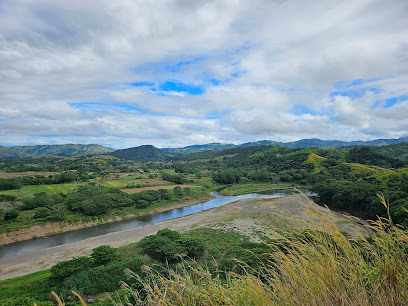
Nabalasere Waterfall
Discover the enchanting Nabalasere Waterfall, a serene paradise in Fiji perfect for nature lovers and adventure seekers alike.
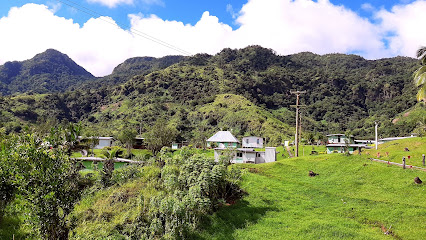
Unmissable attractions to see
Port Denarau Marina
Your gateway to Fiji's idyllic islands: dining, shopping, and island-hopping adventures await at Denarau Marina.
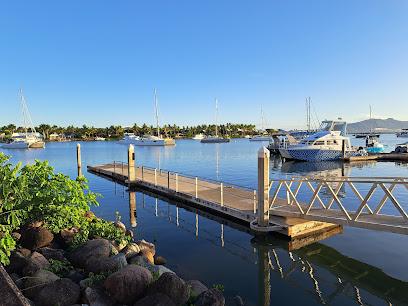
Malamala Beach Club
Experience the world's first island beach club, just minutes from Denarau. Indulge in white sands, turquoise waters, and vibrant island vibes.
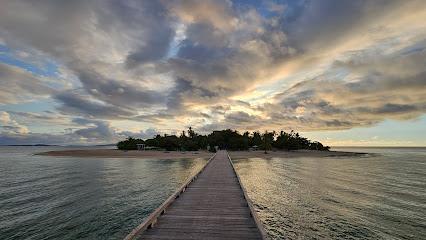
Sri Siva Subramaniya Swami Temple
Discover Fiji's cultural heart at the Sri Siva Subramaniya Swami Temple, a stunning example of Dravidian architecture and Hindu spirituality.
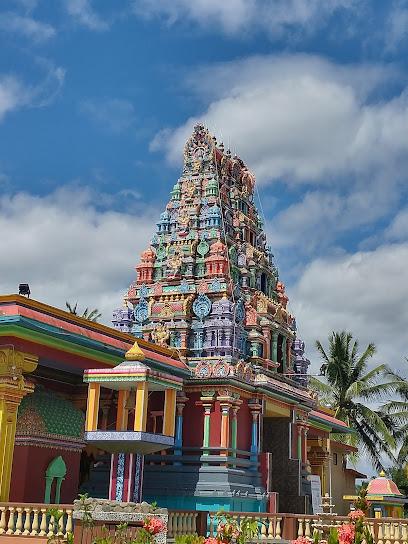
Garden of the Sleeping Giant
Discover Fiji's Garden of the Sleeping Giant: A stunning orchid collection and tranquil rainforest escape await near Nadi.
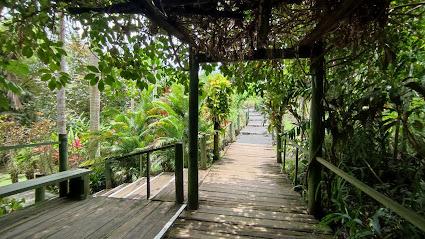
South Sea Cruises
Your gateway to Fiji's island paradise: Day cruises, island transfers, and unforgettable adventures await in the Mamanuca and Yasawa Islands.
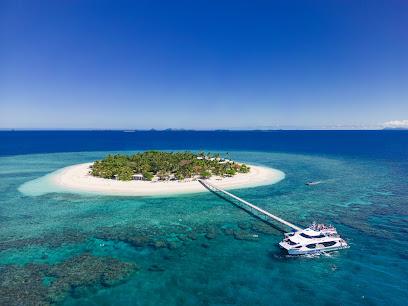
Vuda Marina
Experience the heart of Fijian yachting and island adventures at Vuda Marina, where history meets modern luxury.
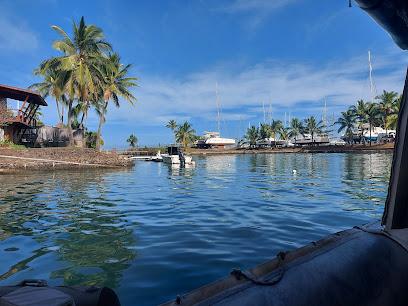
Big Bula Waterpark
Experience thrilling water slides and fun for all ages at Big Bula Waterpark, the ultimate family destination on Denarau Island, Fiji.
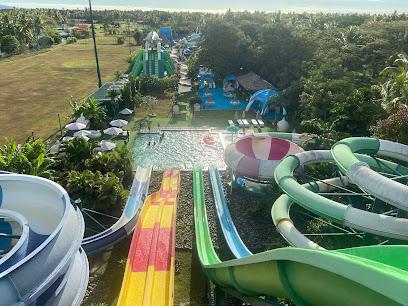
Sabeto Hot Spring Mud Pool and Tours
Rejuvenate in Fiji's Sabeto Valley: Experience therapeutic mud baths and natural hot springs for a unique cultural and wellness escape.
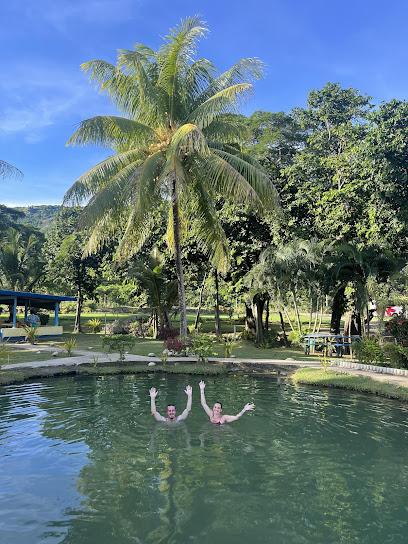
Koroyanitu National Park
Discover Fiji's hidden gem: Hike lush rainforests, experience Fijian culture, and support eco-tourism at Koroyanitu National Heritage Park.
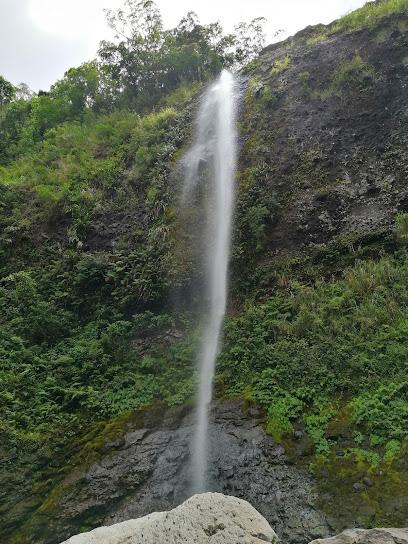
Lautoka Sea Wall
Experience the beauty of Fiji at Lautoka Sea Wall: stunning views, local culture, and a relaxing coastal escape.
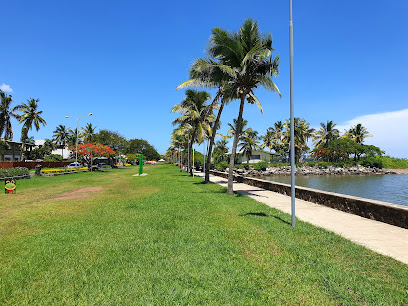
Captain Cook Cruises Fiji
Explore Fiji's stunning islands with Captain Cook Cruises from Port Denarau. Authentic experiences, island beauty, and cultural immersion await.
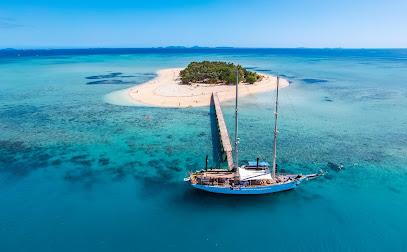
Fiji Culture Village
Experience Fiji's vibrant culture: explore traditional villages, witness captivating ceremonies, and savor authentic cuisine in Nadi.
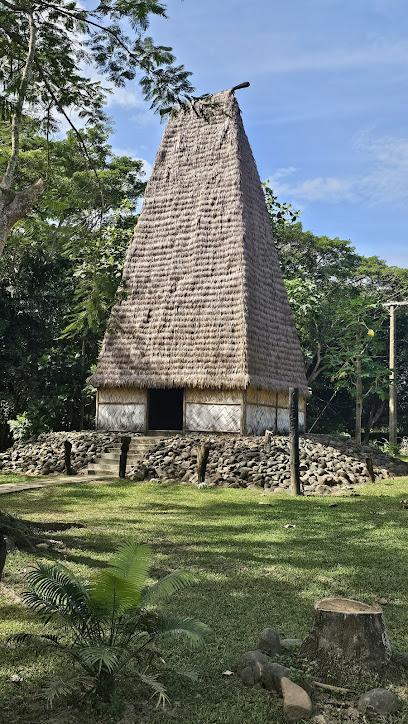
Sigatoka River Safari
Experience Fiji's heart and soul on the Sigatoka River Safari: Jet boat adventure, village visit, and cultural immersion await!
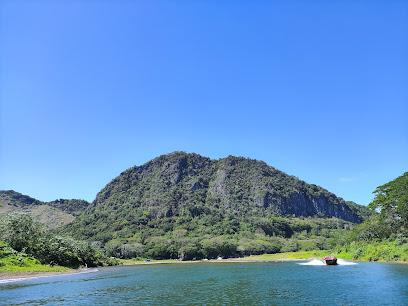
Valentine Tours Fiji
Discover the beauty and culture of Fiji with Valentine Tours, your gateway to unforgettable adventures and experiences in paradise.
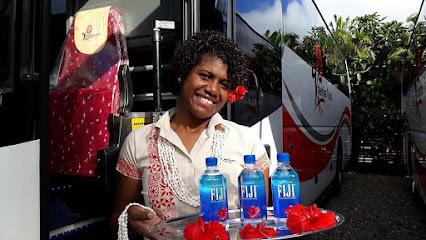
Whale's Tale Cruises Fiji
Explore Fiji's idyllic islands from Denarau Marina, the premier gateway to unforgettable South Pacific adventures and yachting experiences.
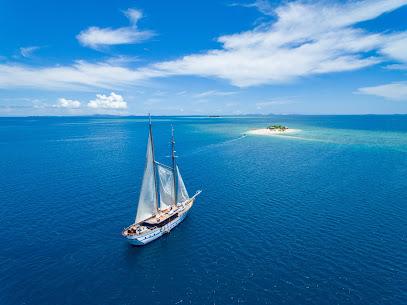
Essential places to dine
Bohai Seafood Restaurant
Discover fresh seafood delights at Bohai Seafood Restaurant in Nadi - a must-visit destination for food lovers seeking authentic Fijian flavors.
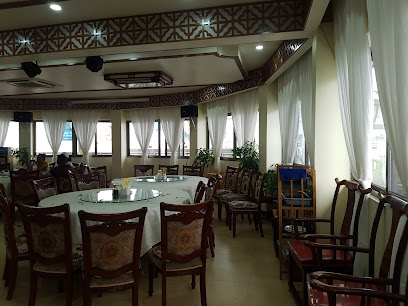
Sitar Indian & Thai Restaurant, Nadi
Experience a delightful fusion of Indian and Thai cuisines at Sitar Indian & Thai Restaurant in Nadi, Fiji - where every meal is a flavorful adventure.
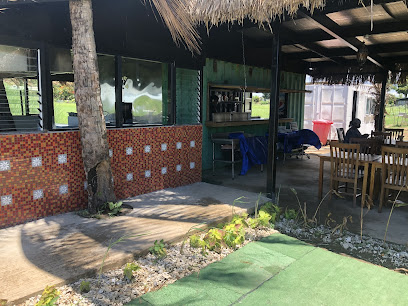
Best Fish & Chips-Waimalika
Experience the best of Fijian cuisine at Best Fish & Chips-Waimalika in Nadi – where fresh flavors meet friendly service!
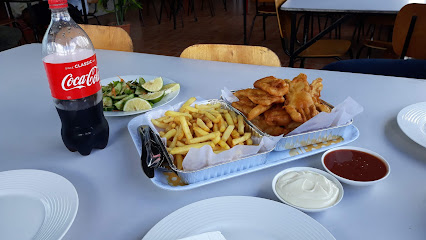
Daikoku 大黑
Discover the essence of Japan at Daikoku 大黑 in Nadi – where authentic flavors meet a warm Fijian welcome.
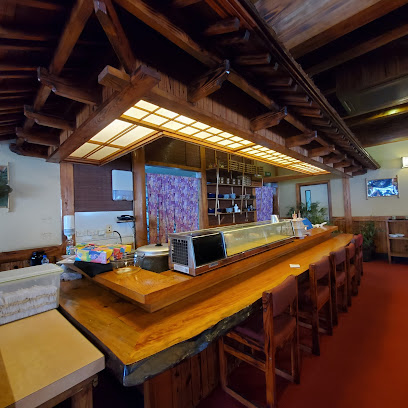
LC's Restaurant
Experience authentic Chinese flavors at LC's Restaurant in Nadi – where every dish tells a story.
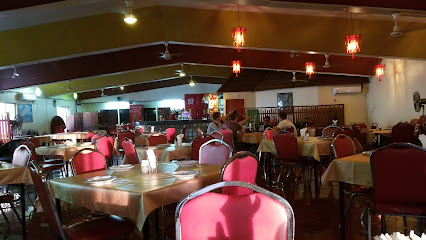
Vasaqa Fiji
Discover the vibrant flavors of Fijian cuisine at Vasaqa Fiji—where every meal is an adventure in taste.
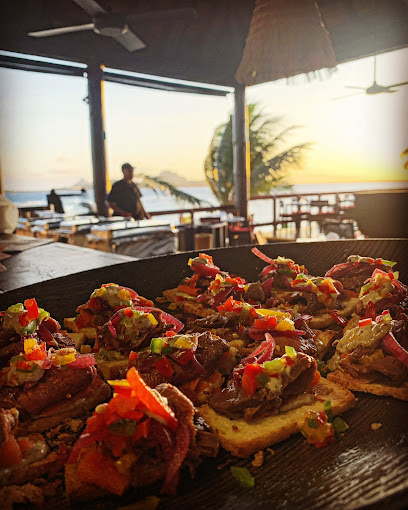
Masala Twist Restaurant
Experience the vibrant taste of India at Masala Twist Restaurant in Nadi - where authentic cuisine meets warm hospitality.
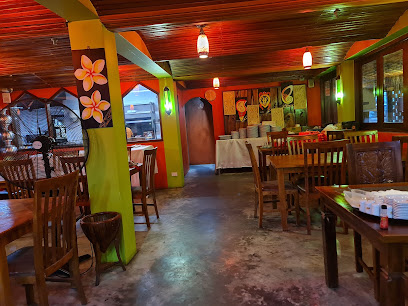
Red Pepper Restaurant & BAR
Experience authentic Punjabi cuisine at Red Pepper Restaurant & BAR in Nadi – where every dish tells a story.
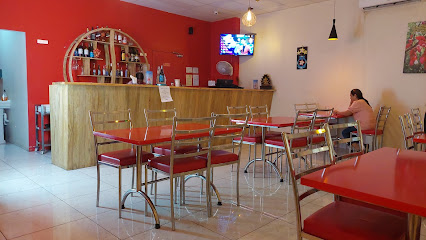
Grace Road Kitchen
Experience authentic Fijian cuisine at Grace Road Kitchen in Nadi - a culinary gem celebrating local flavors and warm hospitality.
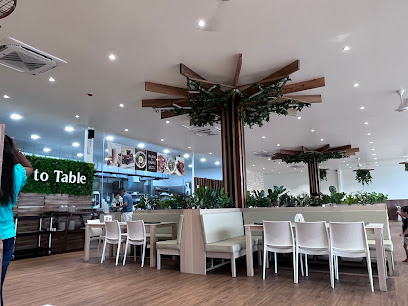
The Coffee Hub - Ba
Discover the vibrant flavors of Fiji at The Coffee Hub - your go-to spot for exceptional coffee and delightful cuisine in Ba.
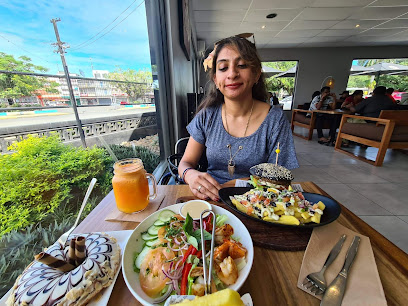
Sweet Laisa's Kitchen
Experience authentic Fijian cuisine at Sweet Laisa's Kitchen in Nadi - where every dish tells a story.
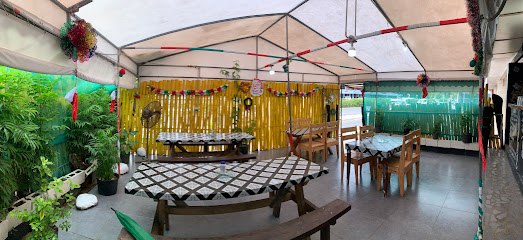
Little Ocean Seafood Restaurant
Discover authentic Chinese seafood delicacies at Little Ocean Seafood Restaurant in Nadi - where flavors meet tradition.
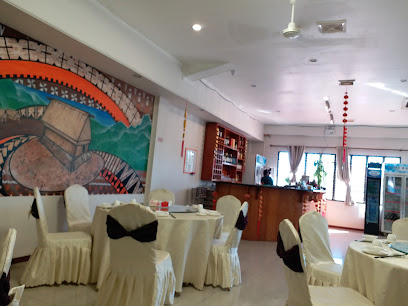
Chands Restaurant
Discover authentic Fijian cuisine at Chands Restaurant in Ba, where flavorful dishes meet warm hospitality.
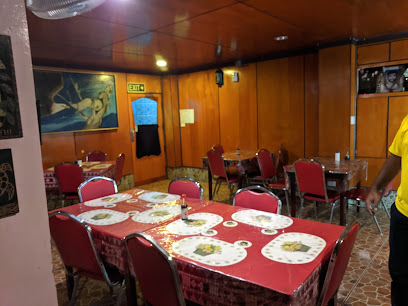
Japanese Restaurant IKKYU
Discover authentic Japanese flavors at IKKYU - where tradition meets culinary excellence in Nadi's vibrant dining scene.
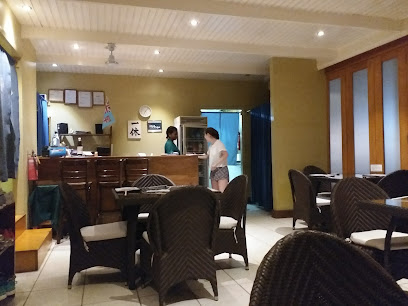
Great Wall Seafood Restaurant
Experience authentic Chinese seafood dishes in Lautoka at Great Wall Seafood Restaurant – where every meal tells a story.
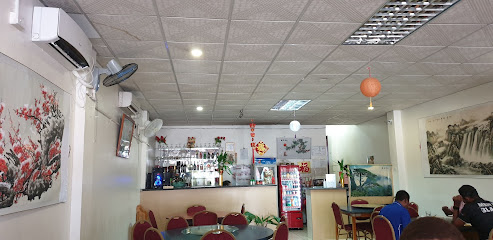
Markets, malls and hidden boutiques
Shop'n Save
Explore the vibrant flavors of Fiji at Shop'n Save in Ba, a local grocery store offering fresh produce and unique local products.
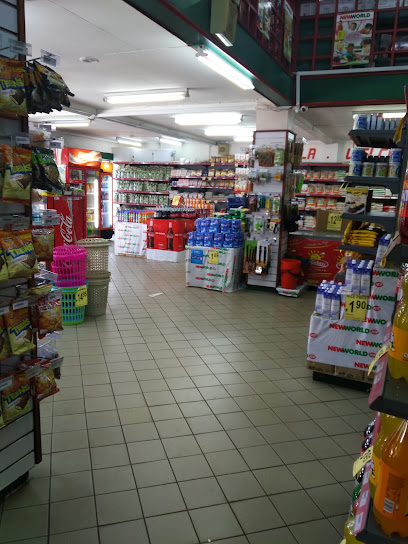
NEWWORLD Shop 1
Explore fresh local produce and unique Fijian goods at NEWWORLD Shop 1 in Ba, your gateway to the flavors of Fiji.
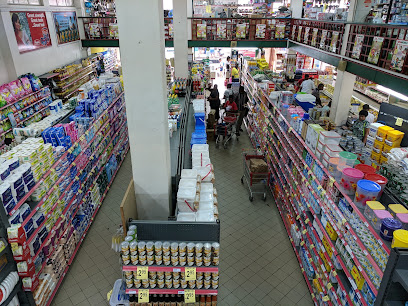
Rise Beyond The Reef
Discover unique handcrafted souvenirs at Rise Beyond The Reef, where Fijian culture and artistry come alive in every piece.
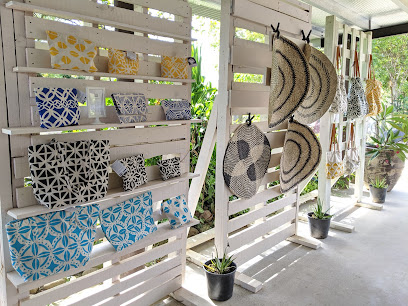
New World Shop 2
Explore New World Shop 2 in Ba: a treasure trove of local and international groceries, perfect for every traveler’s needs.
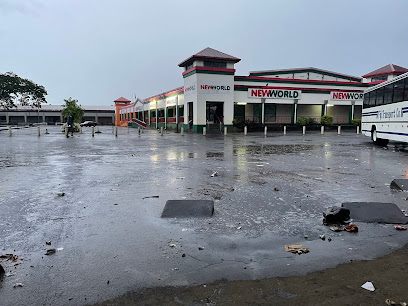
Rups Big Bear Ba 1
Discover a diverse shopping experience at Rups Big Bear in Ba, Fiji, where quality meets convenience in a vibrant atmosphere.
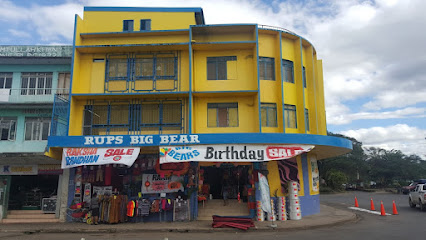
NEWWORLD Shop 3
Explore the vibrant NEWWORLD Shop 3 in Ba, a premier supermarket offering fresh produce, local snacks, and everyday essentials for every traveler.
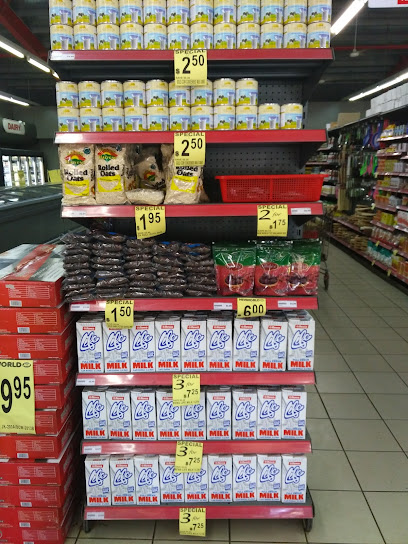
Dimple minimart
Explore the vibrant flavors of Fiji at Dimple Minimart, your local grocery store in Ba, offering fresh produce and delicious snacks.
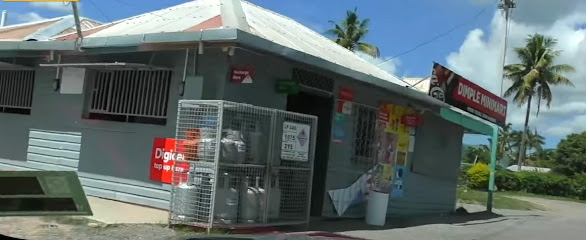
Premier Book Center
Explore the Premier Book Center in Ba for a diverse collection of literature, local insights, and a cozy atmosphere perfect for book lovers.
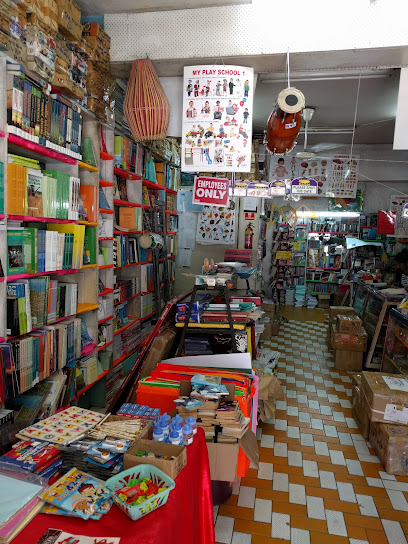
Jacks Discount Store
Explore Jacks Discount Store in Nadi for a unique shopping experience featuring local handicrafts, jewelry, cosmetics, and more at great prices.
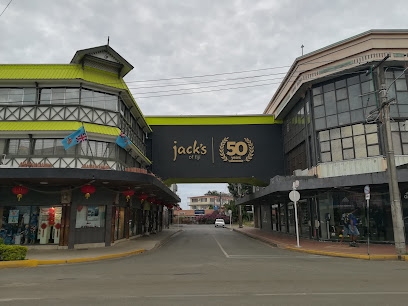
MaxVal-U Ba Supermarket
Explore MaxVal-U Ba Supermarket in Fiji: Your go-to spot for local goods and international favorites in the heart of Ba.

Oazzis - Lingerie Boutique in Fiji
Explore Oazzis, a premier lingerie boutique in Fiji, offering exquisite intimate apparel in a warm and welcoming atmosphere.
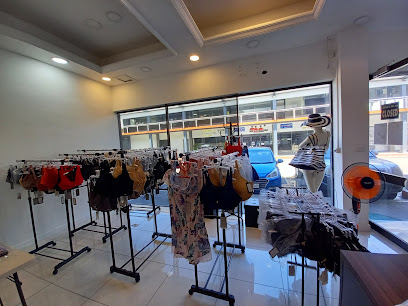
Best Sellers Shopping Centre
Discover local crafts and cultural treasures at the Best Sellers Shopping Centre in Naboutini, your gateway to Fijian shopping and souvenirs.
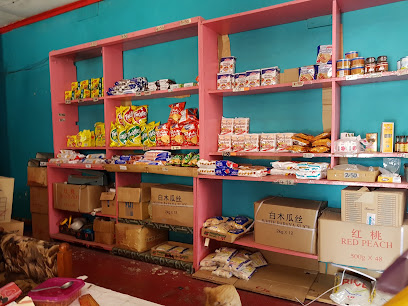
Charans Top Shop & Liquor Land
Explore a vibrant shopping experience at Charans Top Shop & Liquor Land, where Fijian culture meets exceptional shopping choices.

D.C. DEVIDAS & CO
Discover stylish dresses and unique Fijian fashion at D.C. DEVIDAS & CO in Ba, Fiji, a must-visit clothing store for every tourist.

Value City (SP) Pte Ltd, Ba
Explore Value City in Ba, Fiji, where fashion meets affordability in a vibrant used clothing store offering unique finds.
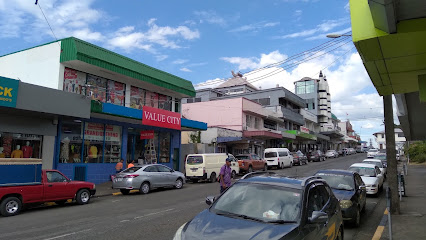
Essential bars & hidden hideouts
Ice Bar
Discover the unique nightlife at Ice Bar Nadi, where frosty cocktails and vibrant ambiance create unforgettable memories for tourists.
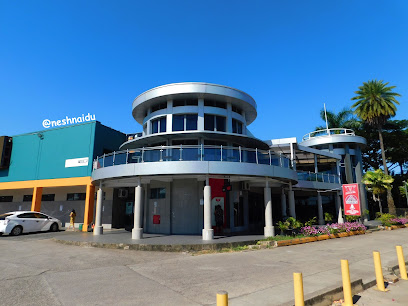
Legends Sports Bar and Restaurant
Discover the vibrant atmosphere at Legends Sports Bar and Restaurant in Nadi, where delicious food meets exciting nightlife for an unforgettable experience.
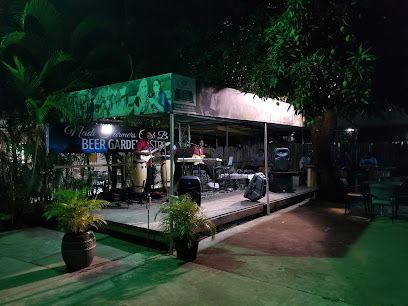
The Hive
Experience the vibrant nightlife of Nadi at The Hive, your go-to bar for delightful cocktails and a lively atmosphere.
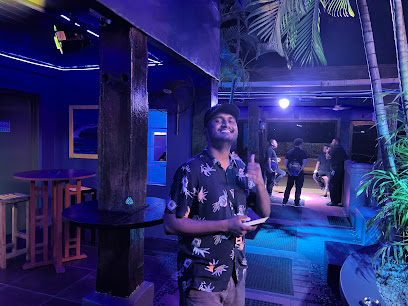
Momos Tavern
Experience the vibrant nightlife at Momos Tavern in Nadi, where local culture meets delicious food and refreshing drinks.
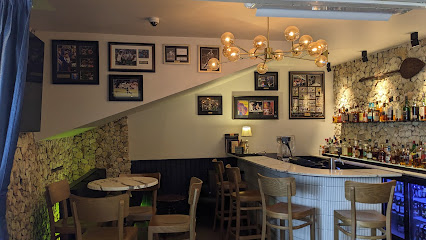
Top Flite Bar & Restaurant
Experience the vibrant nightlife and delicious local cuisine at Top Flite Bar & Restaurant in Lautoka, Fiji.
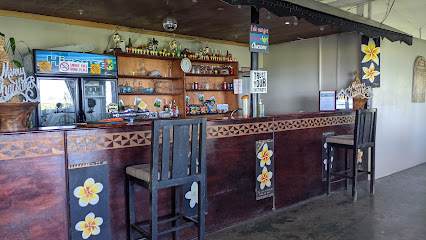
The Stadium View
Experience the thrill of live sports and vibrant nightlife at The Stadium View, Lautoka's top sports bar offering delicious food and refreshing drinks.
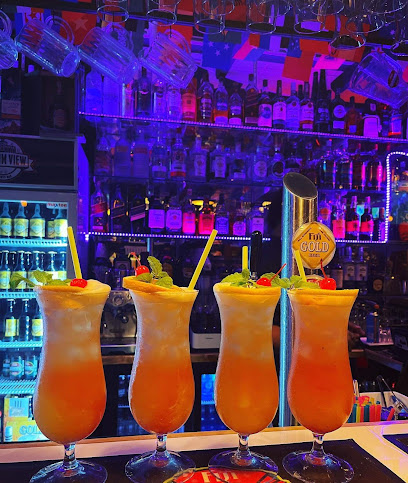
Tiger louge bar
Experience the vibrant atmosphere of Tiger Lounge Bar in Nadi, Fiji, where refreshing drinks and island vibes await every visitor.
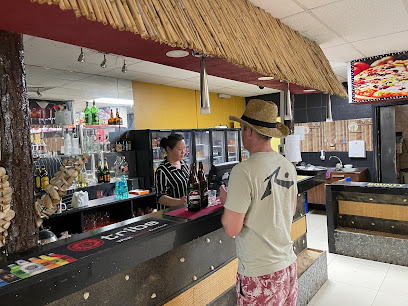
KAVA UP
Discover the rich flavors and traditions of Fiji at KAVA UP, where kava and culture meet in a vibrant atmosphere.
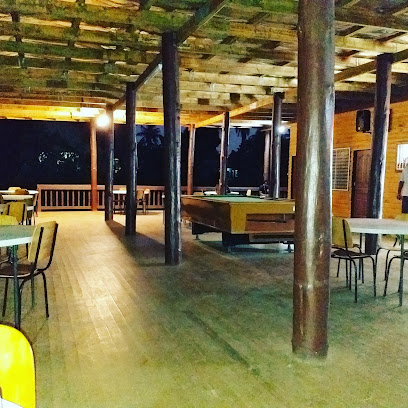
VP’s Kava Bar
Discover the authentic taste of Fiji at VP’s Kava Bar, where tradition meets relaxation in the heart of Nadi.
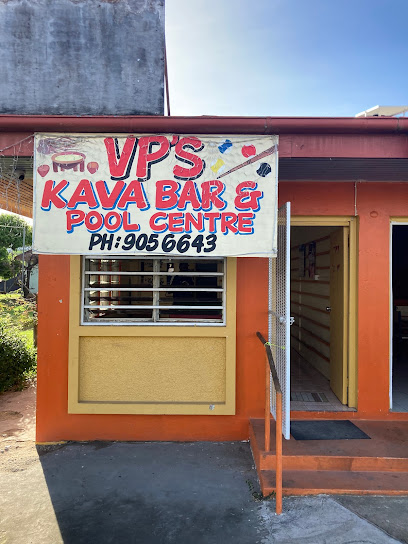
Jojo's Shack
Experience the heart of Nadi nightlife at Jojo's Shack, a vibrant bar offering refreshing drinks and a taste of local culture.

Satellite Kava And Pool Centre
Experience the essence of Fiji at Satellite Kava And Pool Centre, where relaxation meets traditional culture by the poolside.
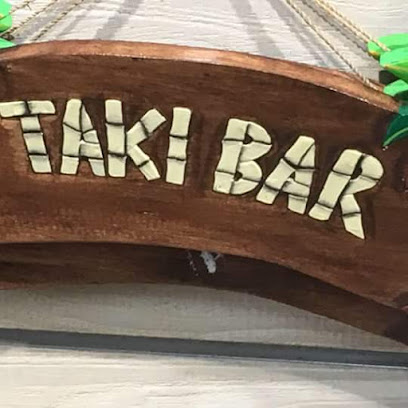
88 Kava Bar & Refreshment
Discover the essence of Fiji at 88 Kava Bar & Refreshment in Lautoka, where traditional kava and vibrant culture come together.
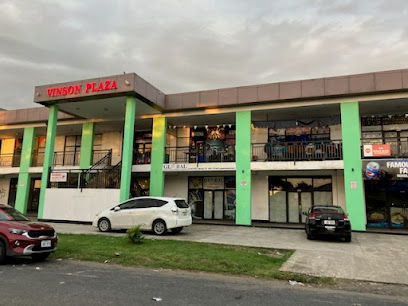
Pub Heaven Sports & Kava Bar
Dive into the vibrant energy of Pub Heaven Sports & Kava Bar in Ba, where sports, kava, and local flavors unite for an unforgettable experience.
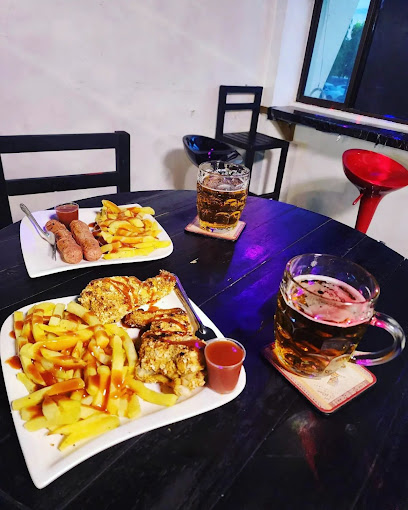
Vineels kava shop
Discover the essence of Fijian culture with a visit to Vineels Kava Shop, where authentic kava experiences await in a welcoming atmosphere.

Local Phrases
-
- HelloBula
[boo-lah] - GoodbyeMoce
[moh-they] - YesIo
[ee-oh] - NoSega
[seh-ngah] - Please/You're welcomeVinaka
[vee-nah-kah] - Thank youVinaka vakalevu
[vee-nah-kah vah-kah-lay-voo] - Excuse me/SorryTulou
[too-low] - How are you?Ko sa bula?
[kaw sah boo-lah] - Fine. And you?Vinaka. Iko?
[vee-nah-kah. ee-koh?] - Do you speak English?O i cavuti vakaviti?
[oh ee thah-voo-tee vah-kah-vee-tee] - I don't understandAu sega ni kila
[ow seh-ngah nee kee-lah]
- HelloBula
-
- I'd like to see the menu, pleaseAu via raici na menu, vinaka
[ow vee-ah rye-thee nah meh-noo, vee-nah-kah] - I don't eat meatAu sega ni kana na manumanu
[ow seh-ngah nee kah-nah nah mah-noo-mah-noo] - Cheers!Bula vinaka!
[boo-lah vee-nah-kah] - I would like to pay, pleaseAu via vakamalua, vinaka
[ow vee-ah vah-kah-mah-loo-ah, vee-nah-kah]
- I'd like to see the menu, pleaseAu via raici na menu, vinaka
-
- Help!Ni vinakati au!
[nee vee-nah-kah-tee ow] - Go away!Lako tani!
[lah-koh tah-nee] - Call the Police!Qito na Pulis
[nghee-toh nah poo-lees] - Call a doctor!Qito e dua na doctor
[nghee-toh eh doo-ah nah dock-tor] - I'm lostAu sa sega ni kila na sala
[ow sah seh-ngah nee kee-lah nah sah-lah] - I'm illAu sa bibi
[ow sah bee-bee]
- Help!Ni vinakati au!
-
- I'd like to buy...Au via voli...
[ow vee-ah voh-lee] - I'm just lookingAu via raica tiko
[ow vee-ah rye-thah tee-koh] - How much is it?E vica na nodrau?
[eh vee-thah nah noh-drau] - That's too expensiveSa levu sara
[sah leh-voo sah-rah] - Can you lower the price?E rawa ni vakalailai na cava?
[eh rah-wah nee vah-kah-lahy-lahy nah thah-vah]
- I'd like to buy...Au via voli...
-
- What time is it?Na veisiga e vica ga?
[nah vay-see-ngah eh vee-thah ngah] - It's one o'clockE dua na siga
[eh doo-ah nah see-ngah] - Half past (10)E lima na siga
[eh lee-mah nah see-ngah] - MorningNa siga ni mataka
[nah see-ngah nee mah-tah-kah] - AfternoonNa siga ni siga balavu
[nah see-ngah nee see-ngah bah-lah-voo] - EveningNa siga ni yakavi
[nah see-ngah nee yah-kah-vee] - YesterdayE vakarauvaki
[eh vah-kah-rah-oo-vah-kee] - TodayE na siga
[eh nah see-ngah] - TomorrowE na siga mataka
[eh nah see-ngah mah-tah-kah] - 1Dua
[doo-ah] - 2Rua
[roo-ah] - 3Tolu
[toh-loo] - 4Va
[vah] - 5Lima
[lee-mah] - 6Ono
[oh-noh] - 7Vitu
[vee-too] - 8Walubu
[wah-loo-boo] - 9Ciwa
[thee-wah] - 10Tini
[tee-nee]
- What time is it?Na veisiga e vica ga?
-
- Where's a/the...?E vei na...
[eh vay nah] - What's the address?Na caka ca?
[nah thah-kah thah] - Can you show me (on the map)?E rawa ni vakaraitaki au?
[eh rah-wah nee vah-kah-rye-tah-kee ow] - When's the next (bus)?E vica na kena siga ni...
[eh vee-thah nah keh-nah see-ngah nee] - A ticket (to ....)E dua na tiketi (ki ...)
[eh doo-ah nah tee-keh-tee kee]
- Where's a/the...?E vei na...
History of Ba
-
Ba, located on the western side of Viti Levu in Fiji, has been inhabited for thousands of years. The indigenous Fijians, believed to have arrived from Melanesia, established thriving communities along the Ba River. They developed a rich culture characterized by complex social structures, traditional crafts, and elaborate ceremonies. The early settlers practiced subsistence farming, fishing, and later, engaged in trade with neighboring islands.
-
The arrival of European explorers in the 18th century marked the beginning of significant changes for Ba. By the late 19th century, British colonial rule had been established. The construction of the Rarawai Sugar Mill in 1886 transformed Ba into a bustling hub for the sugar industry. Indian laborers were brought to Fiji under the indenture system to work on the sugar plantations, leading to a significant demographic shift and the introduction of Indian culture and traditions to the region.
-
The period from 1879 to 1916 is known as the 'Girmit' era, derived from the mispronunciation of the word 'agreement' by Indian laborers. During this time, thousands of Indians were transported to Fiji to work on the sugar plantations under harsh conditions. Despite the challenges, they persevered, and many chose to stay in Fiji after their contracts ended. This era significantly influenced the cultural and social landscape of Ba, making it one of the most multicultural regions in Fiji.
-
Fiji gained independence from British colonial rule in 1970, marking a new chapter in the history of Ba. The town saw significant development in infrastructure, education, and healthcare. The sugar industry remained a cornerstone of the local economy, but diversification into other sectors such as tourism, agriculture, and small-scale manufacturing began to take shape. Ba's multicultural community continued to thrive, with public festivals and events celebrating the region's diverse heritage.
-
Ba has faced numerous natural disasters, including cyclones and floods, which have periodically devastated the region. Notable events include Cyclone Kina in 1993 and the severe flooding in 2009. Despite these challenges, the community has demonstrated remarkable resilience and unity. Recovery efforts have often brought the people of Ba together, strengthening communal bonds and reinforcing the spirit of 'solesolevaki,' or communal cooperation.
-
Today, Ba is a vibrant town that beautifully blends tradition with modernity. The legacy of its indigenous Fijian roots, colonial history, and multicultural influences is evident in its daily life. From traditional Fijian ceremonies and Indian festivals to contemporary developments in education, healthcare, and commerce, Ba stands as a testament to Fiji's rich cultural tapestry and dynamic progress. Visitors to Ba can experience a unique blend of historical depth and cultural vibrancy, making it a fascinating destination for history enthusiasts and travelers alike.
Ba Essentials
-
Ba is located on the western side of Viti Levu, Fiji's largest island. The nearest international airport is Nadi International Airport, approximately 40 kilometers away. From Nadi, you can take a taxi or private shuttle service to Ba, which typically takes around 45 minutes to an hour. There are also local buses that run between Nadi and Ba, offering an affordable, albeit slower, option.
-
Within Ba, local buses and taxis are the primary means of transportation. Taxis are readily available and relatively inexpensive, but it is advisable to agree on the fare before the journey as not all taxis have meters. Buses operate on fixed routes and are an economical way to get around. Car rentals are also available for those who prefer to explore at their own pace. Walking is a viable option for short distances, especially within the town center.
-
The official currency in Fiji is the Fijian Dollar (FJD). Credit cards are widely accepted in hotels, restaurants, and larger shops in Ba. However, it is advisable to carry cash for smaller establishments and local markets. ATMs are available throughout Ba, but it is wise to have some cash on hand, especially when traveling to more remote areas.
-
Ba is generally a safe destination for tourists. However, it is advisable to take standard precautions such as avoiding walking alone at night and keeping an eye on personal belongings in crowded places. There are no specific high-crime areas targeting tourists, but remaining vigilant is always a good practice.
-
In case of an emergency, dial 911 for immediate assistance. Ba has a local police station and medical facilities, including a hospital and several clinics. It is recommended to have travel insurance that covers medical emergencies. Pharmacies are available for over-the-counter medications, and most medical staff speak English.
-
Fashion: Do dress modestly, especially when visiting religious sites or local villages. Avoid wearing overly revealing clothing. Religion: Do respect local customs and traditions. Always remove your shoes before entering someone's home or a religious building. Public Transport: Do be respectful on public transport. Give up your seat to elderly passengers and do not eat or drink on buses. Greetings: Do greet locals with a friendly 'Bula!' (hello). A handshake is also acceptable. Eating & Drinking: Do try local delicacies and accept food offerings graciously. Don't refuse hospitality, as it is considered impolite.
-
To experience Ba like a local, visit the local markets where you can buy fresh produce and traditional Fijian goods. Engage with the friendly locals, who are often more than willing to share stories about Ba's history and culture. Don't miss visiting the Ba River and its surrounding areas, which offer beautiful natural scenery. For a unique experience, attend a local rugby match, as the sport is incredibly popular in Ba.
Trending Landmark in Ba
-
Sri Siva Subramaniya Swami Temple
-
Churchill Park
-
Garden of the Sleeping Giant
-
Kula WILD Adventure Park
-
Sabeto Hot Spring Mud Pool and Tours
-
Koroyanitu National Park
-
Ba River
-
Mount Korobaba
-
Island Hoppers Fiji
-
Tavuni Hill Fort
-
Kila World
-
Rarawai Sugar Mill
-
Namadi Heights Baptist Church
-
Naihehe Cave
-
Nabalasere Waterfall
Nearby Cities to Ba
-
Things To Do in Ba
-
Things To Do in Lautoka
-
Things To Do in Nadi
-
Things To Do in Savusavu
-
Things To Do in Sigatoka
-
Things To Do in Rakiraki
-
Things To Do in Suva
-
Things To Do in Nausori
-
Things To Do in Levuka
-
Things To Do in Kolovai
-
Things To Do in Vava'u
-
Things To Do in Ha'apai
-
Things To Do in Nuku'alofa
-
Things To Do in Pangai
-
Things To Do in Foa









